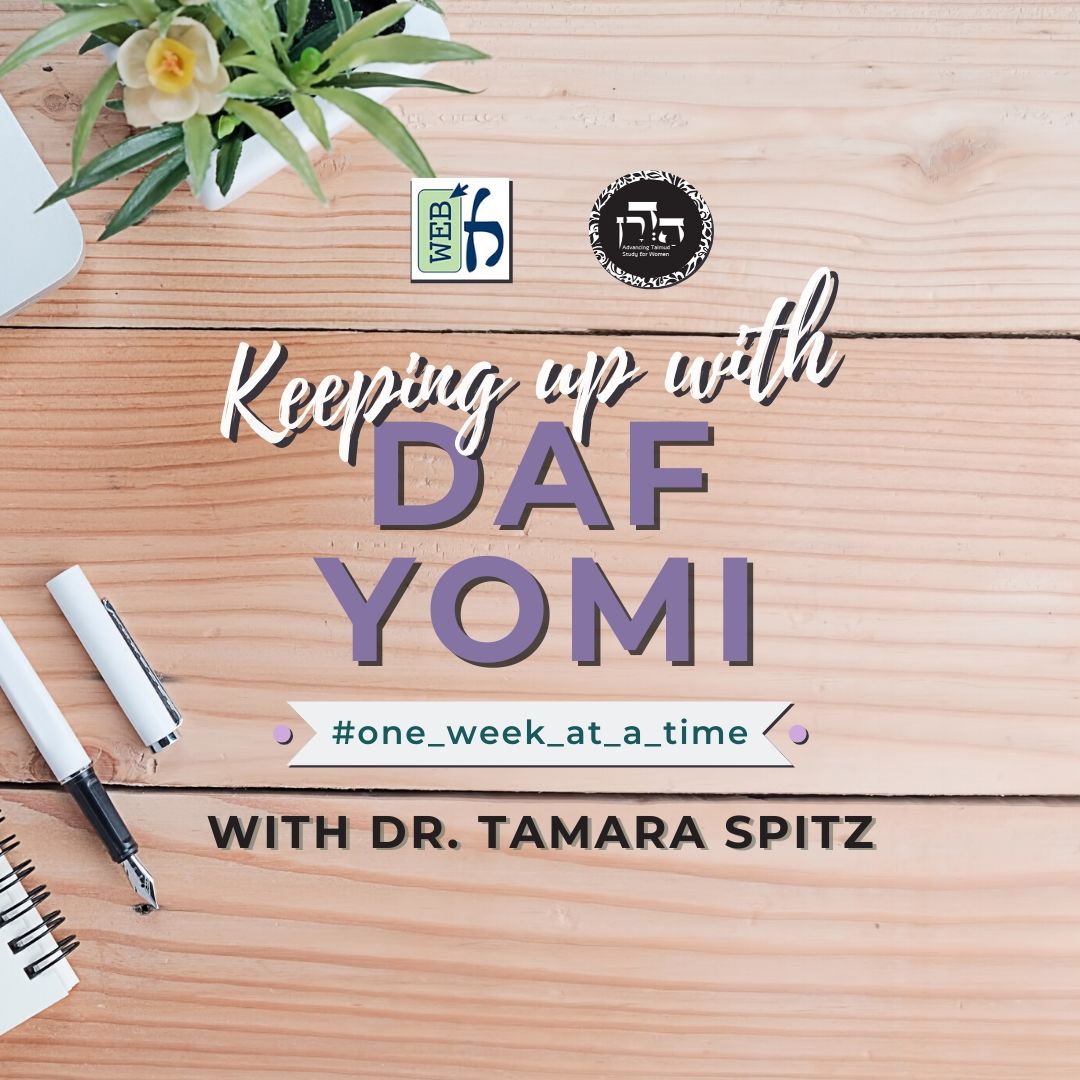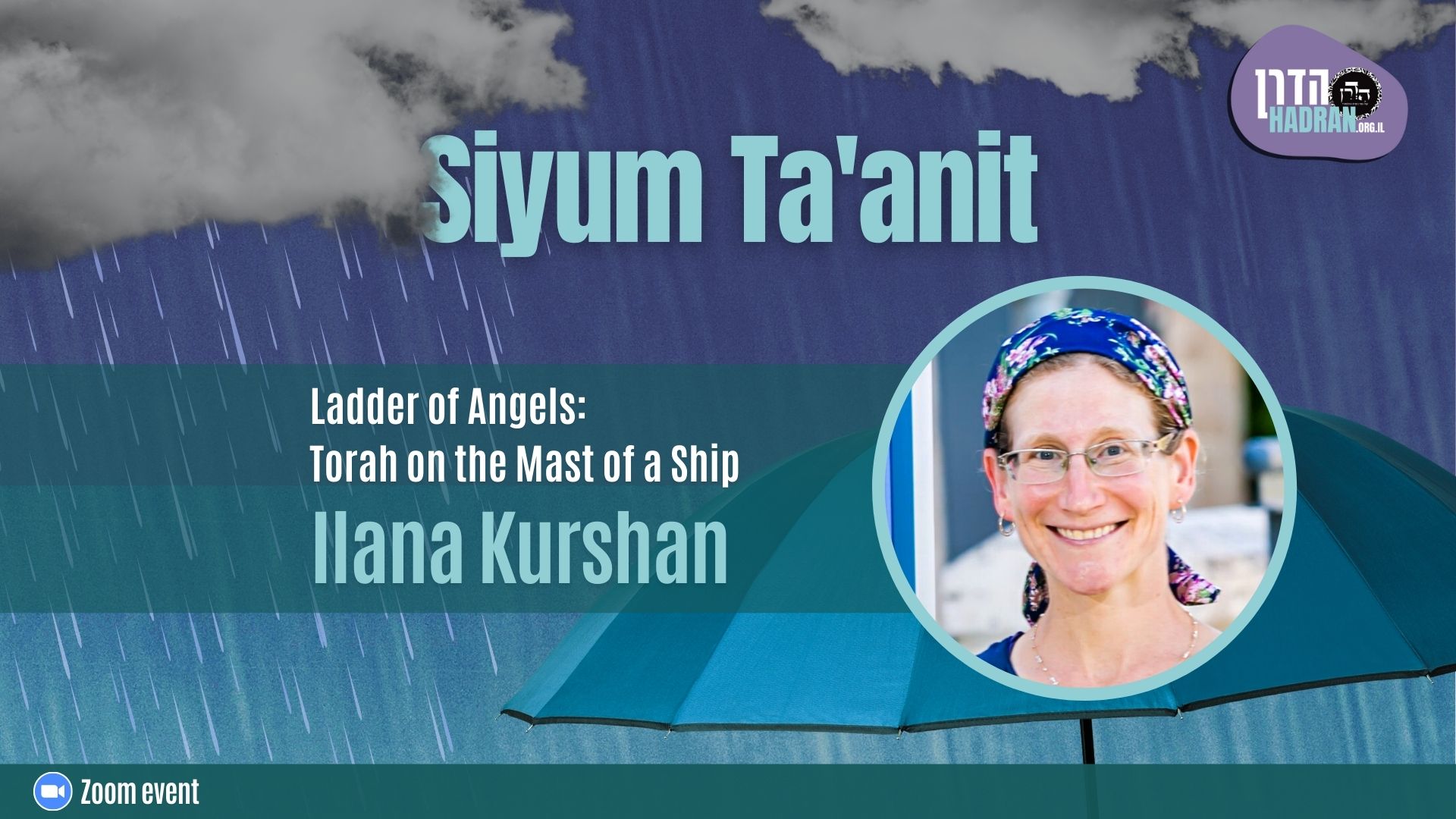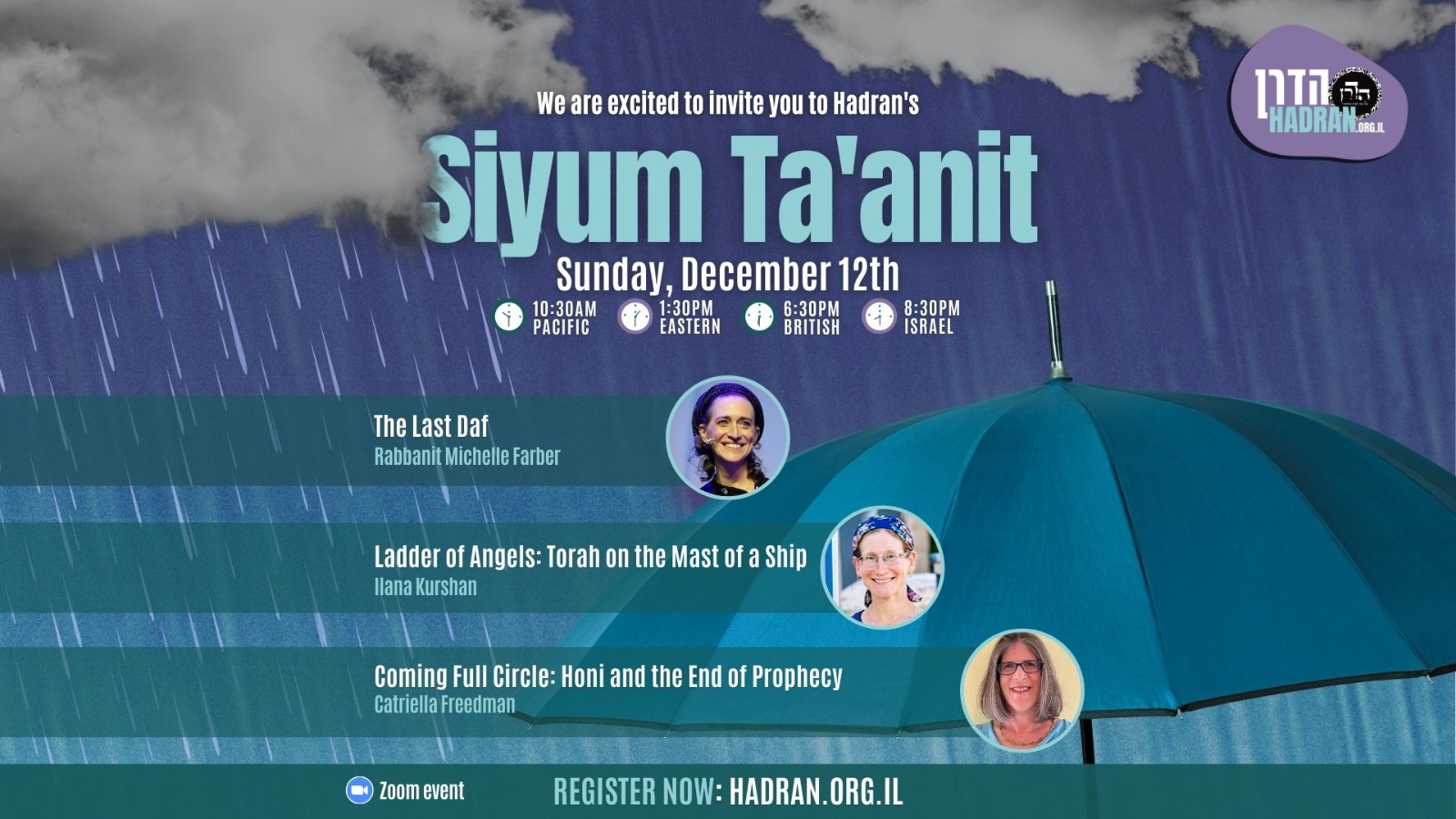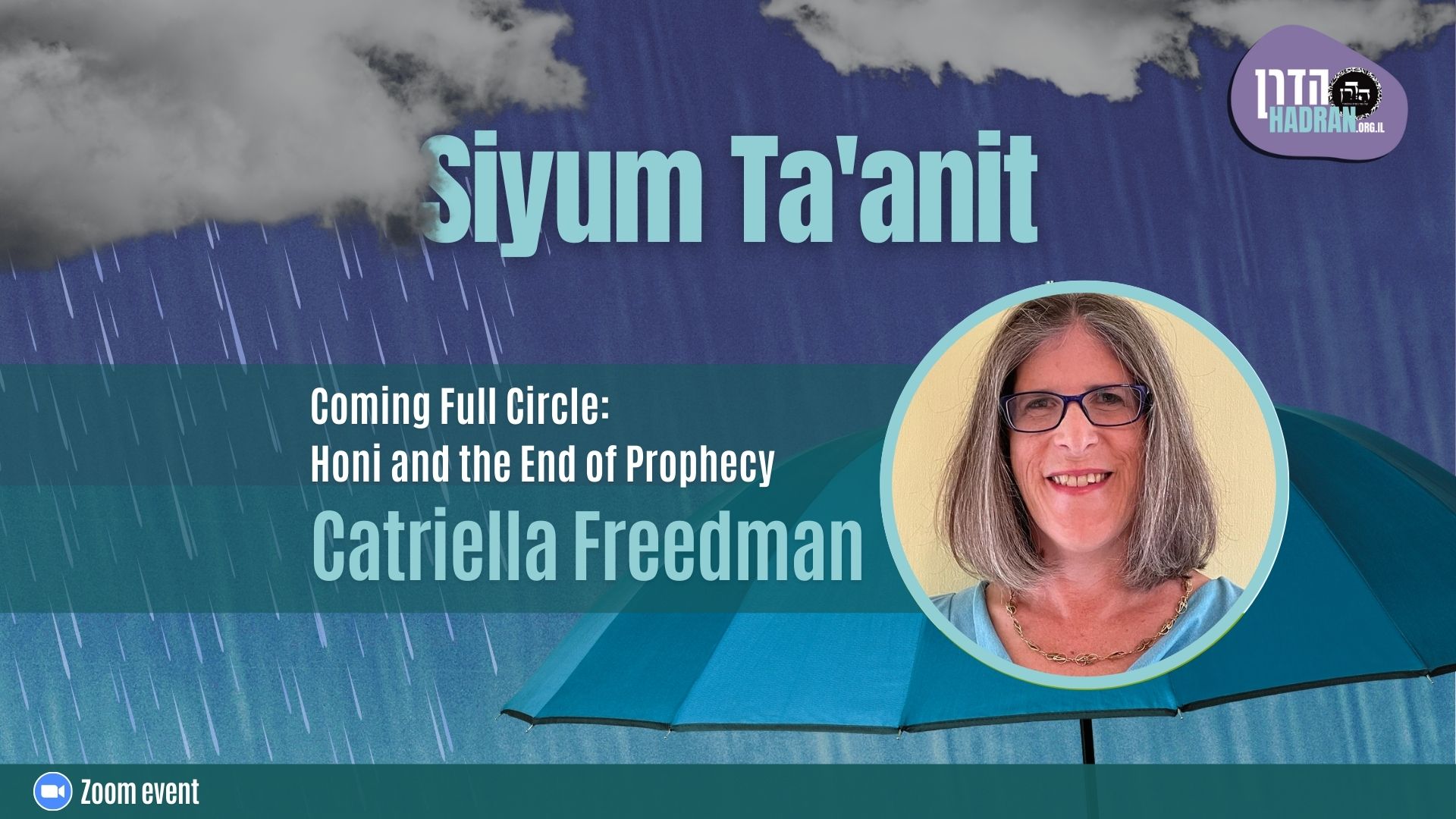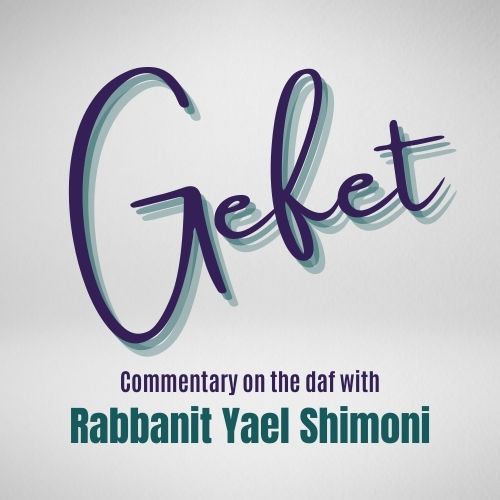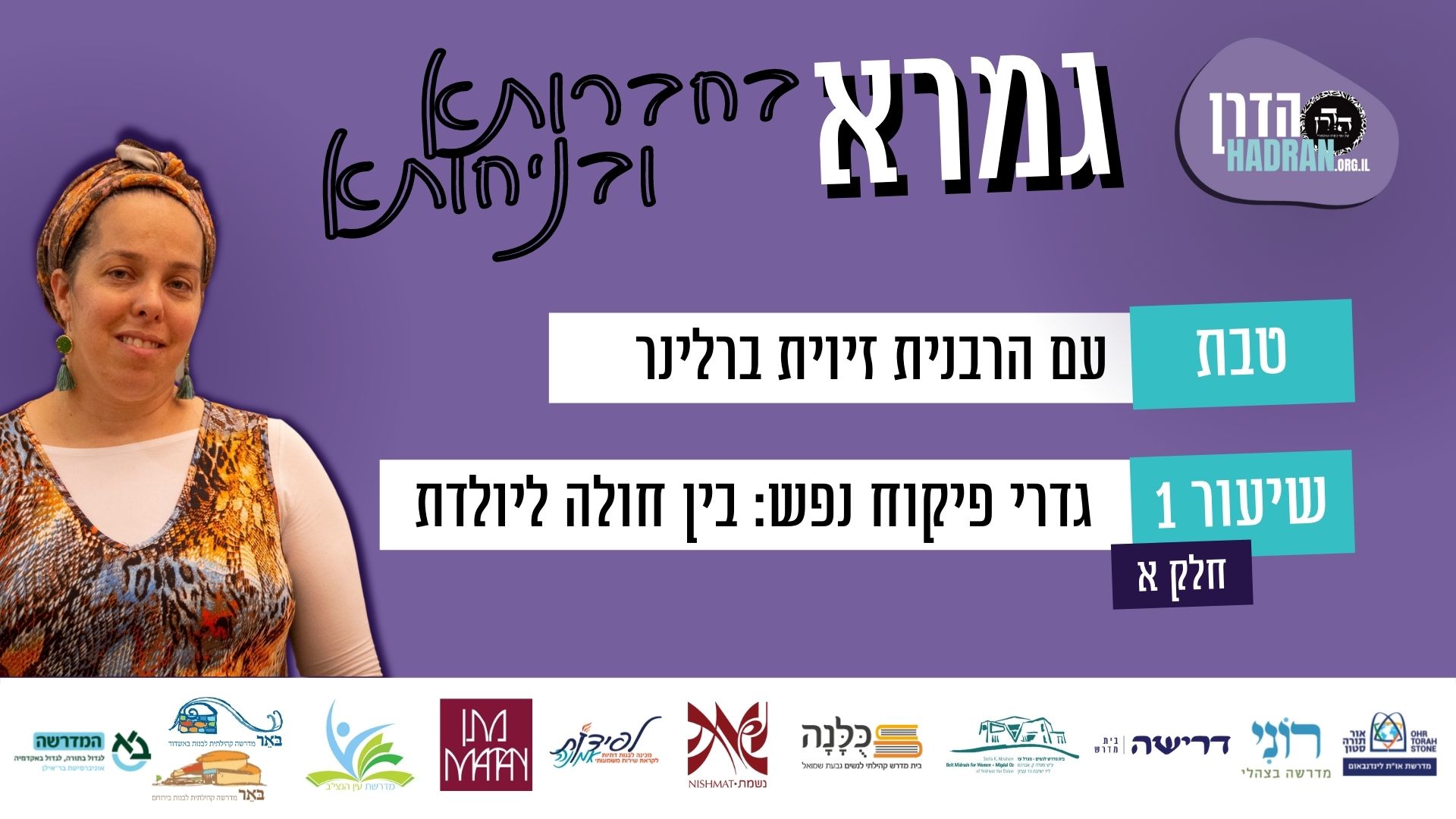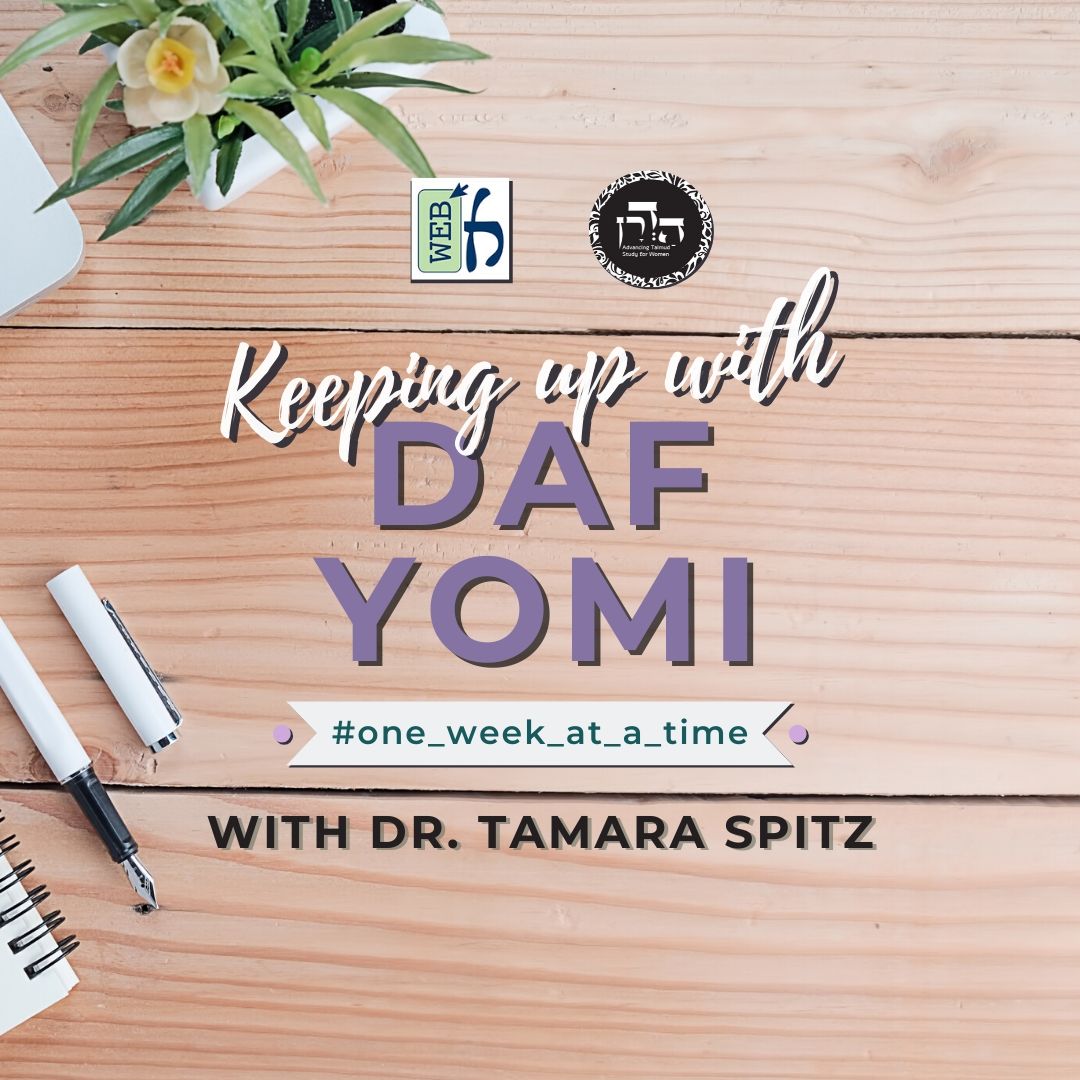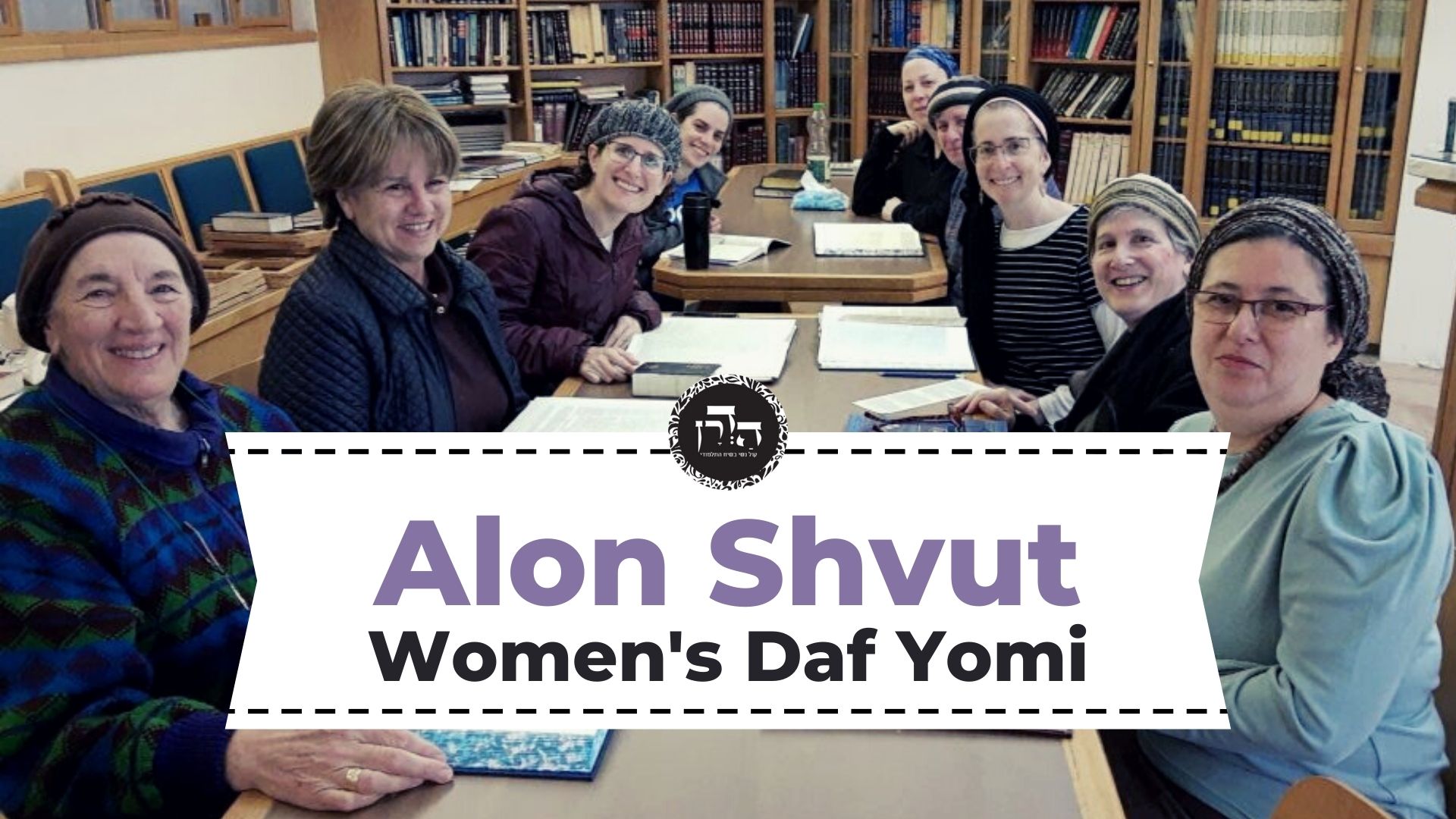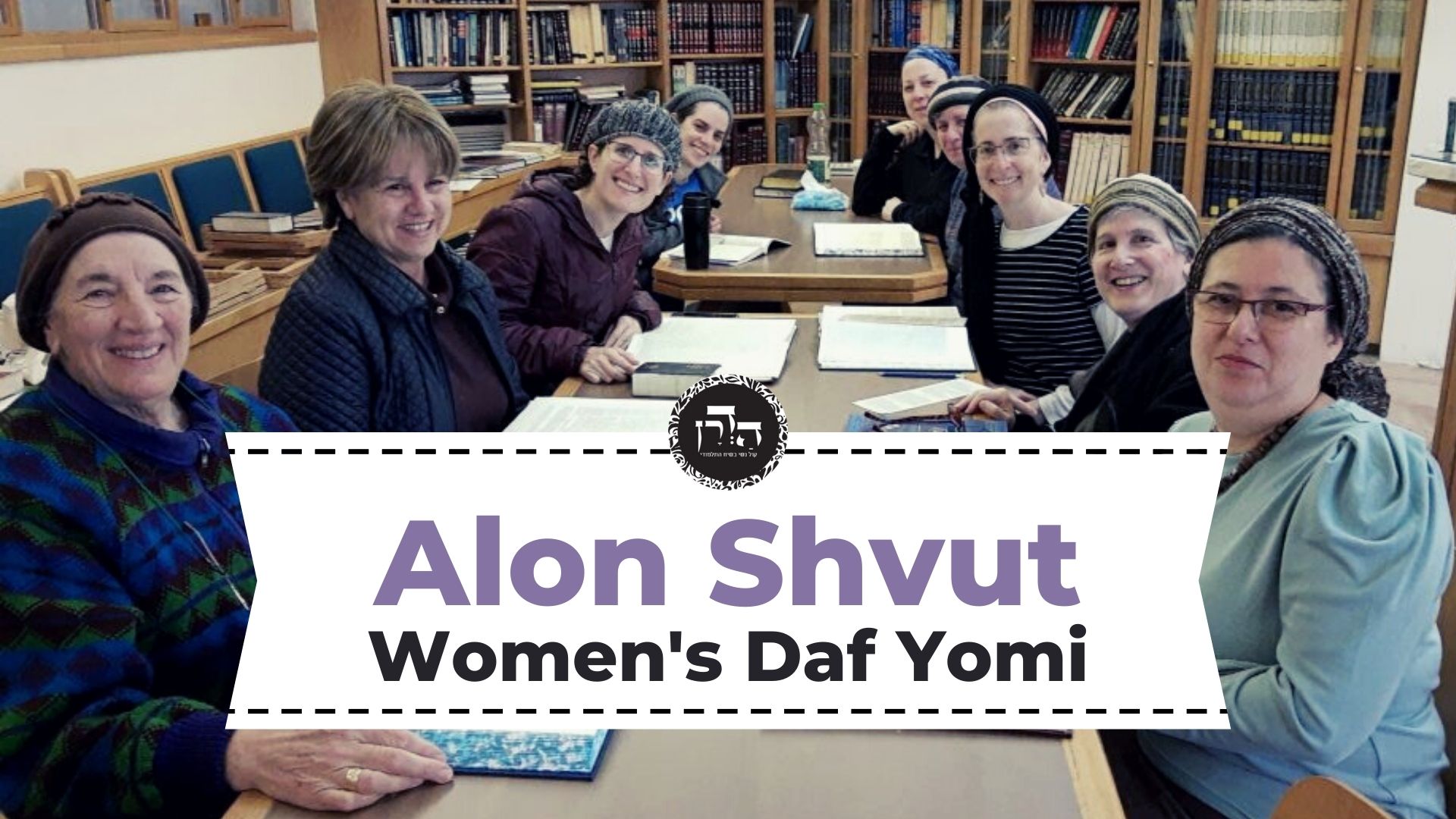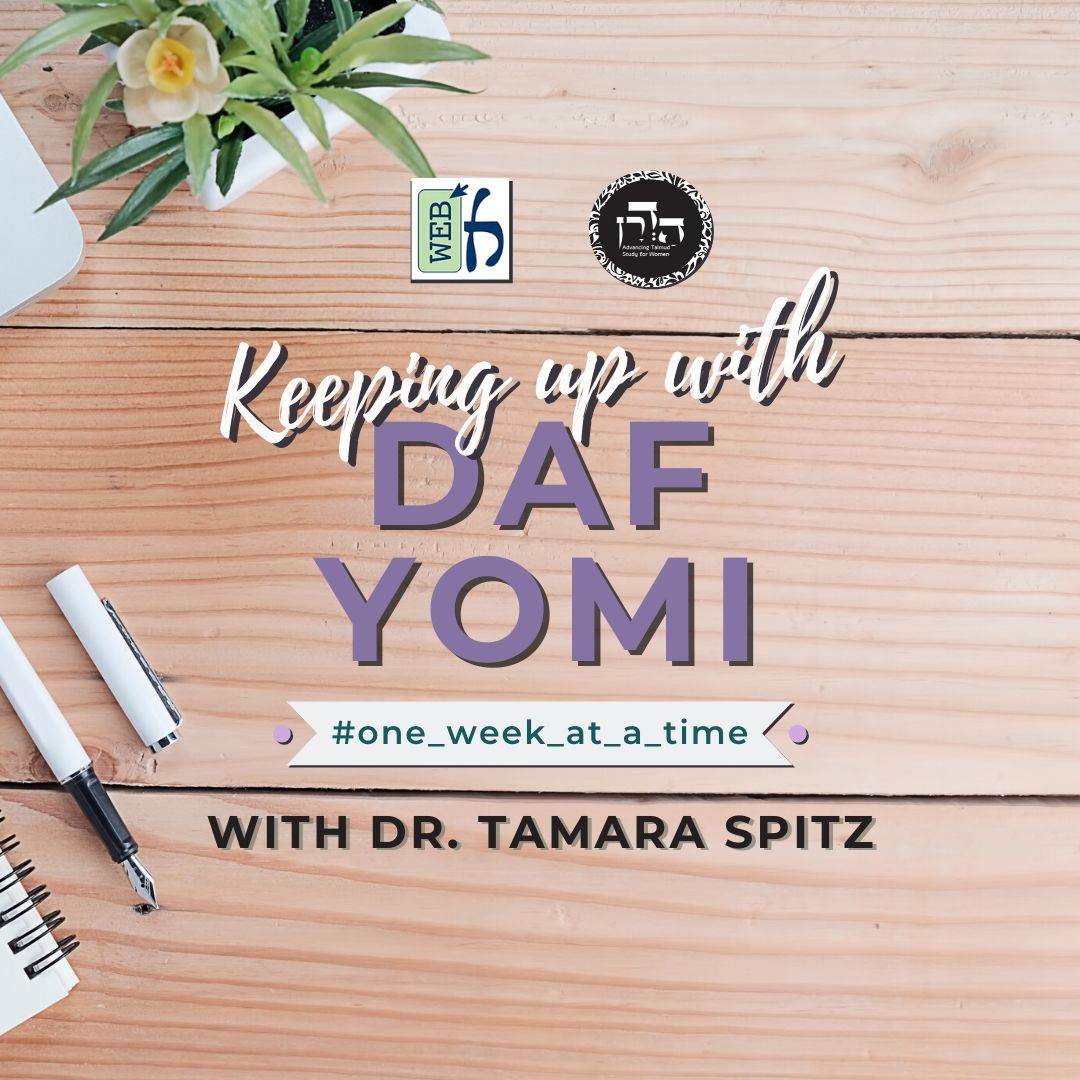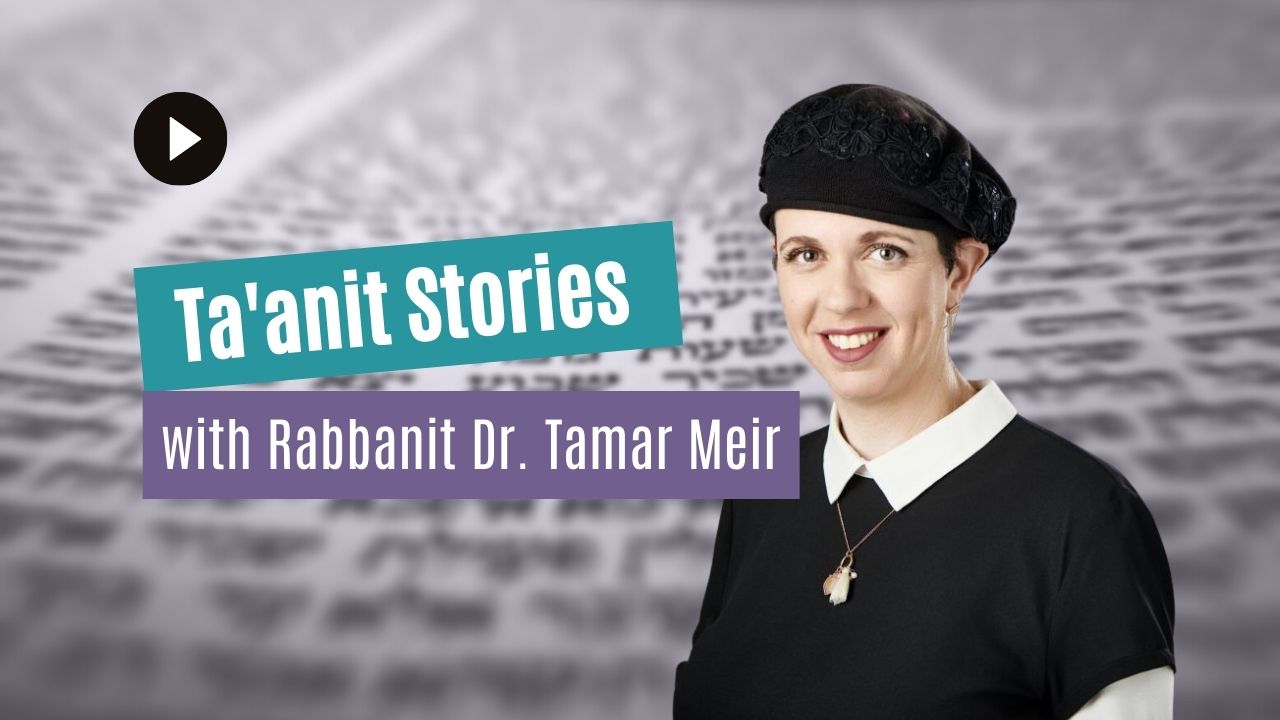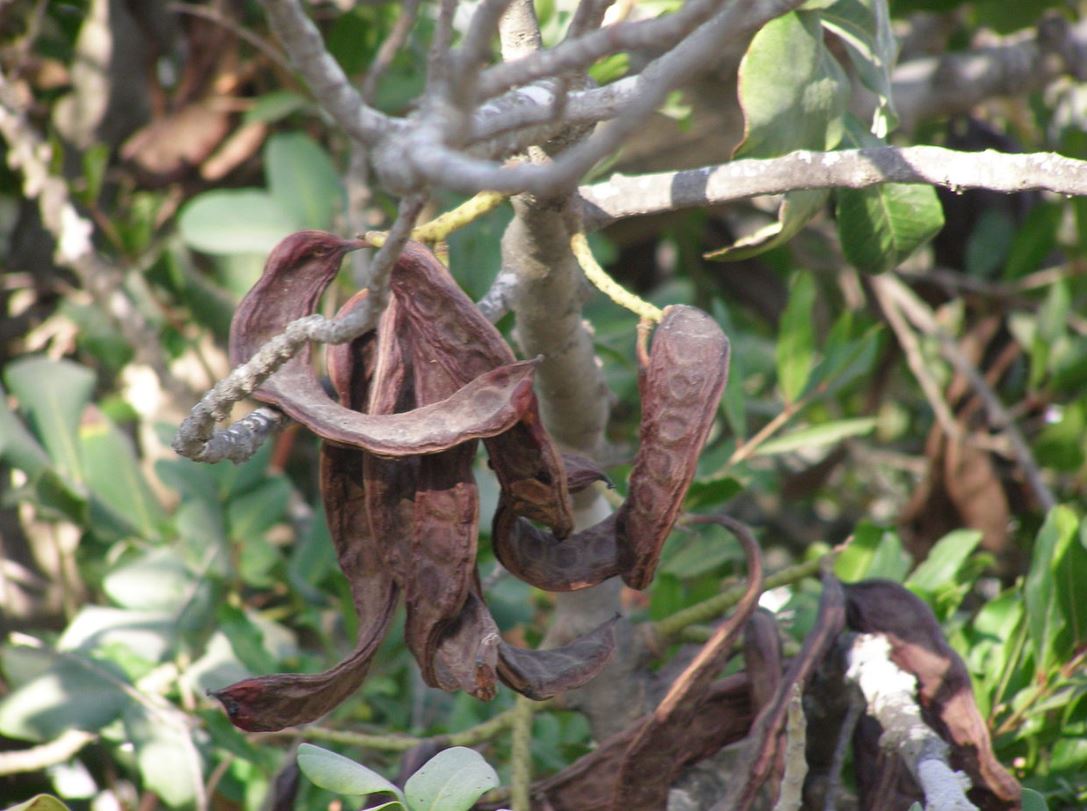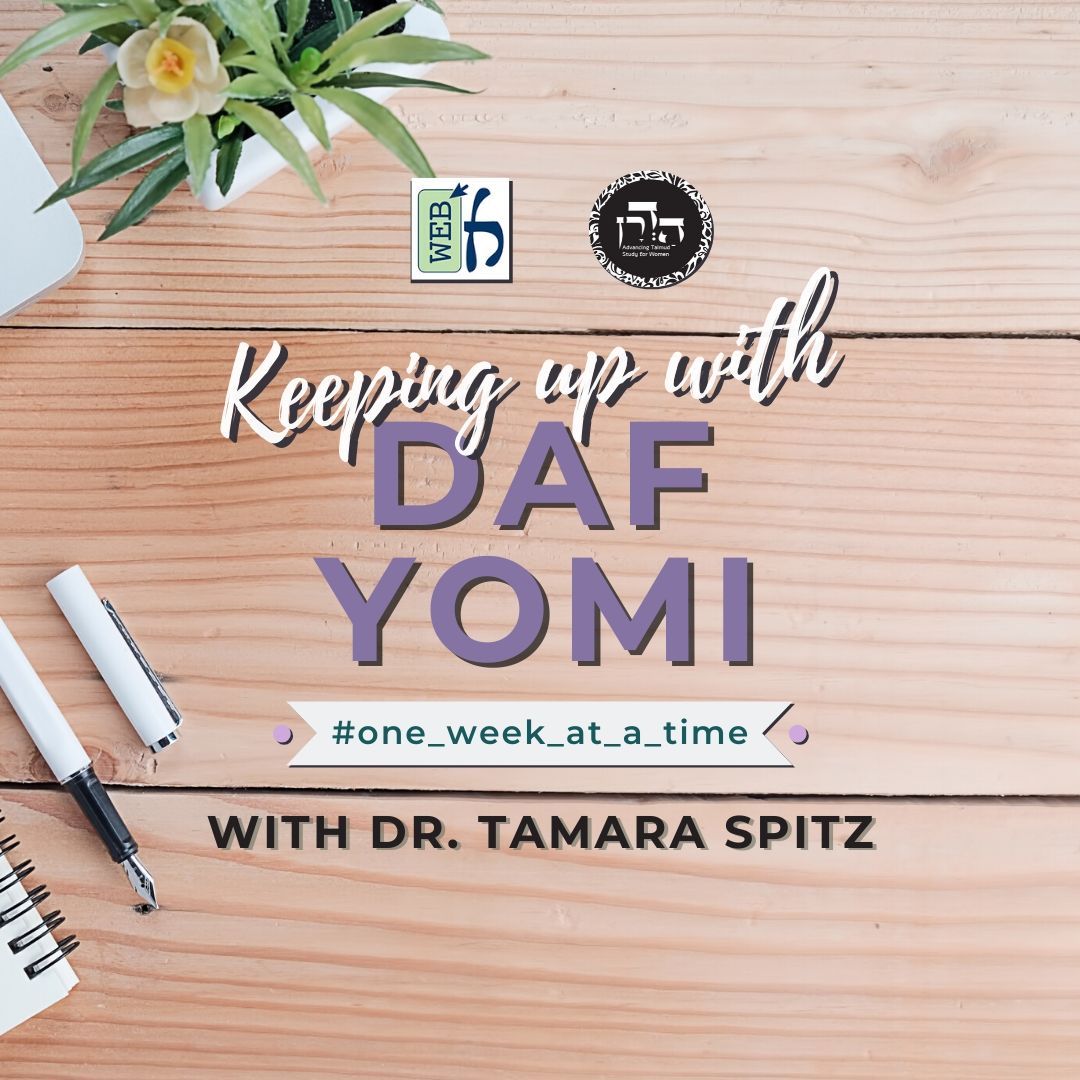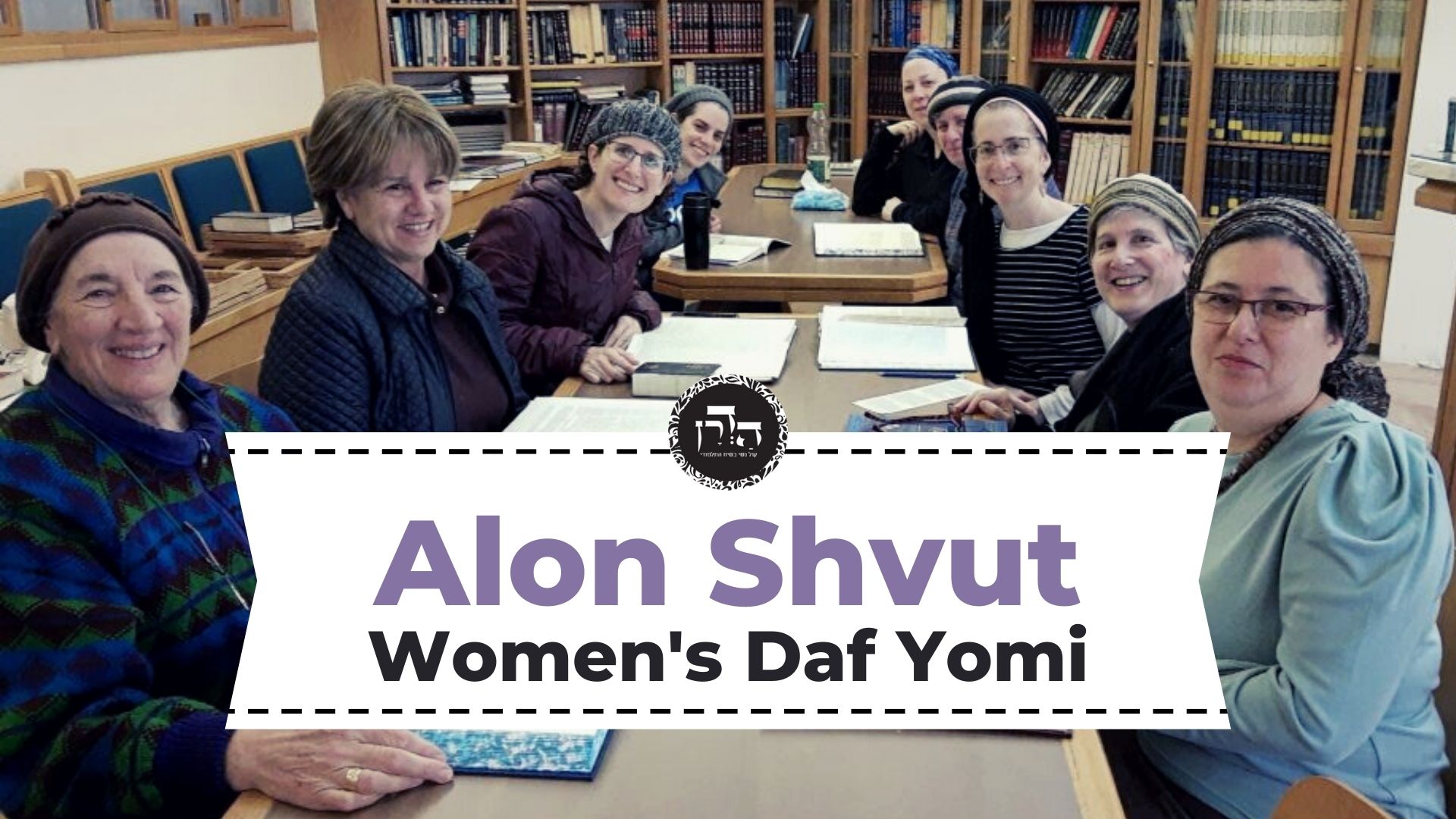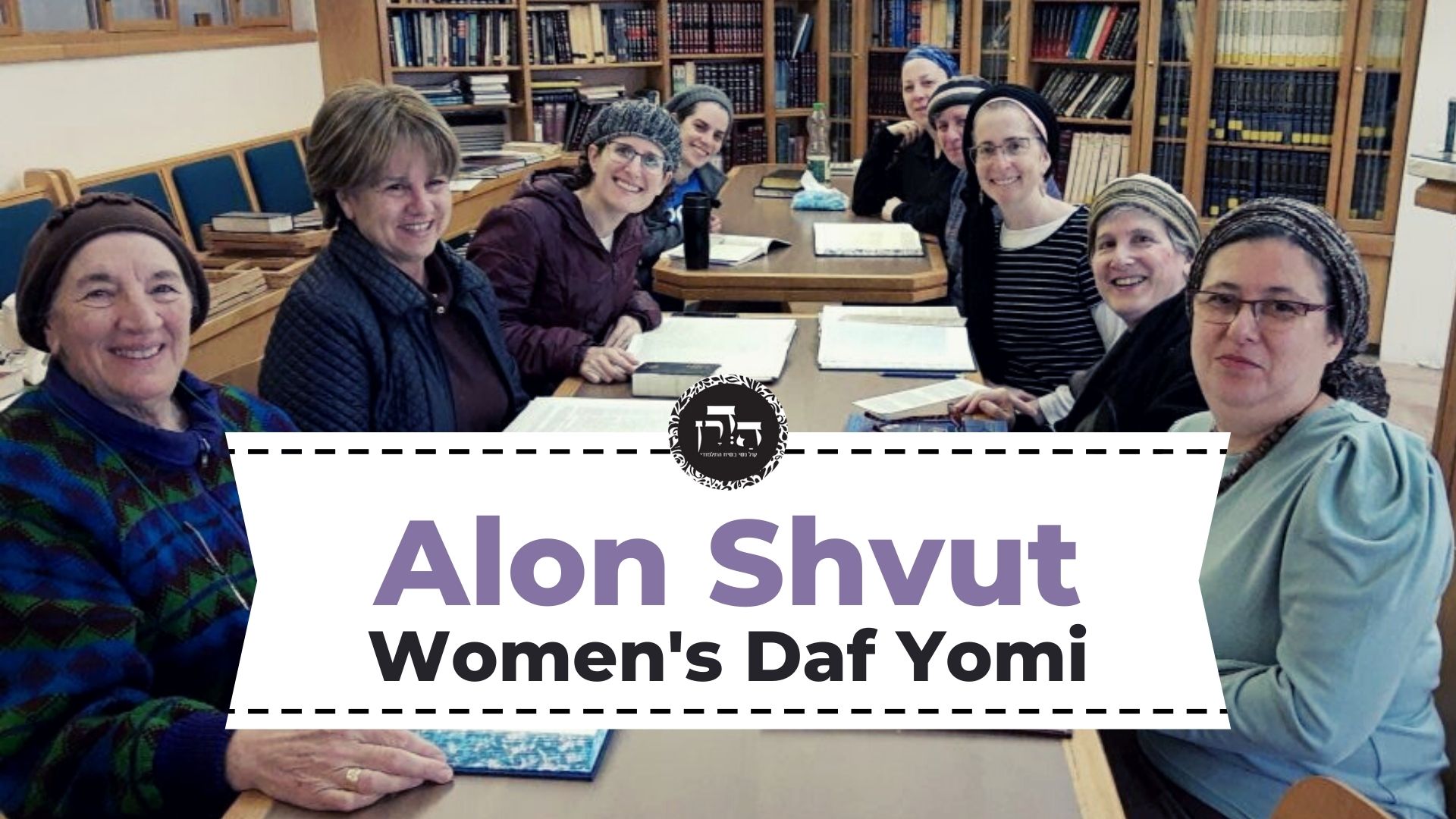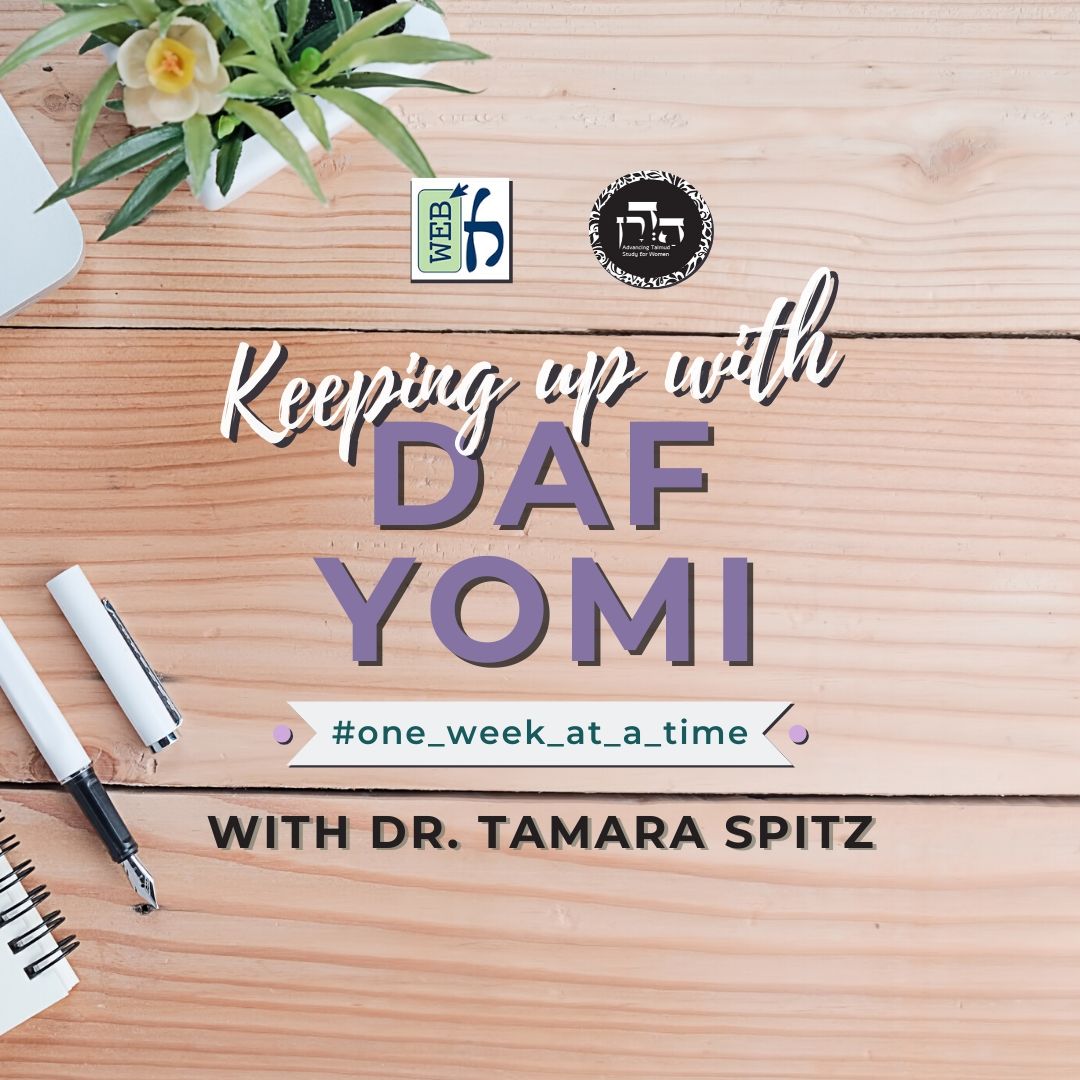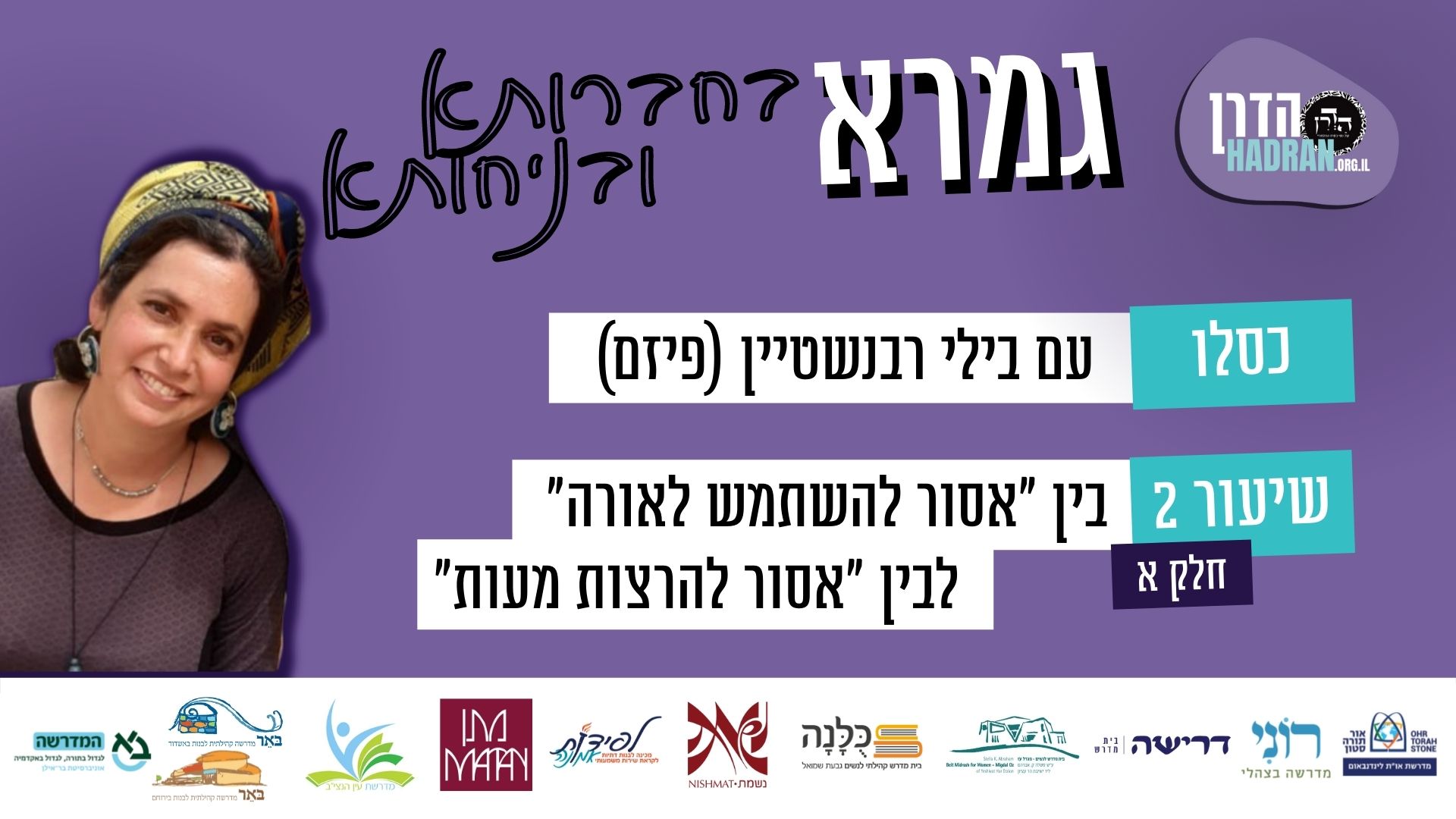How do we know that the five events mentioned in the Mishna as having occurred on the 9th of Av, were actually on that date? The Romans decreed to kill Rabban Gamliel but a Roman officer saved him in exchange for a promise by Rabban Gamliel that he would be promised a place in the World to Come. A story is told of young children of kohanim that committed suicide during the destruction of the Temple. When Av enters, we limit happy things, but when Adar enters, we increase happy things. The mazal is with the Jews in Adar and is not with the Jews in Av, and therefore one should try to push off court cases with gentiles in Av and try to have them in Adar. One cannot do laundry or get a haircut on the week of Tisha B’av. Is it only laundry one wants to wear or even if it is left for later? Is it only the days of the week before Tisha B’av or is it the entire week including the days after Tisha B’av? What other opinions are there regarding the dates for these prohibitions?
Taanit 29
Share this shiur:
Want to dedicate learning? Get started here:


Today’s daily daf tools:
Today’s daily daf tools:
Delve Deeper
Broaden your understanding of the topics on this daf with classes and podcasts from top women Talmud scholars.
New to Talmud?
Check out our resources designed to help you navigate a page of Talmud – and study at the pace, level and style that fits you.
The Hadran Women’s Tapestry
Meet the diverse women learning Gemara at Hadran and hear their stories.
Taanit 29
אַנְתְּ צְבֵית לְ[אַ]חְרוֹבֵי בֵּיתָא — יְדָךְ אַשְׁלֵימְתְּ לֵיהּ.
You want to destroy the Temple; I have given you your hand. It is as though one idol said to the other: You are seeking to destroy the Temple by causing Israel to pray to you; I, too, give you a hand to assist you.
בְּתִשְׁעָה בְּאָב נִגְזַר עַל אֲבוֹתֵינוּ שֶׁלֹּא יִכָּנְסוּ לָאָרֶץ, מְנָלַן — דִּכְתִיב: ״וַיְהִי בַּחֹדֶשׁ הָרִאשׁוֹן בַּשָּׁנָה הַשֵּׁנִית בְּאֶחָד לַחֹדֶשׁ הוּקַם הַמִּשְׁכָּן״. וְאָמַר מָר: שָׁנָה רִאשׁוֹנָה עָשָׂה מֹשֶׁה אֶת הַמִּשְׁכָּן, שְׁנִיָּה הֵקִים מֹשֶׁה אֶת הַמִּשְׁכָּן, וְשָׁלַח מְרַגְּלִים. וּכְתִיב: ״וַיְהִי בַּשָּׁנָה הַשֵּׁנִית בַּחֹדֶשׁ הַשֵּׁנִי בְּעֶשְׂרִים בַּחֹדֶשׁ נַעֲלָה הֶעָנָן מֵעַל מִשְׁכָּן הָעֵדֻת״.
§ The mishna taught: On the Ninth of Av, it was decreed upon our ancestors that they would not enter Eretz Yisrael. The Gemara asks: From where do we derive this? As it is written: “And it came to pass in the first month in the second year, on the first day of the month, that the Tabernacle was erected” (Exodus 40:17). And the Master said: In the first year after leaving Egypt, Moses built the Tabernacle. At the beginning of the second year, Moses erected the Tabernacle and sent the spies. And it is written: “And it came to pass in the second year in the second month, on the twentieth day of the month, that the cloud was taken up from the Tabernacle of the Testimony” (Numbers 10:11).
וּכְתִיב: ״וַיִּסְעוּ מֵהַר ה׳ דֶּרֶךְ שְׁלֹשֶׁת יָמִים״. אָמַר רַבִּי חָמָא בַּר חֲנִינָא: אוֹתוֹ הַיּוֹם סָרוּ מֵאַחֲרֵי ה׳. וּכְתִיב: ״וְהָאסַפְסֻף אֲשֶׁר בְּקִרְבּוֹ הִתְאַוּוּ תַּאֲוָה וַיָּשֻׁבוּ וַיִּבְכּוּ גַּם בְּנֵי יִשְׂרָאֵל וְגוֹ׳״, וּכְתִיב: ״עַד חֹדֶשׁ יָמִים וְגוֹ׳״ — דְּהָווּ לְהוּ עֶשְׂרִין וְתַרְתֵּין בְּסִיוָן,
And it is further written: “And they set forward from the mount of the Lord three days’ journey” (Numbers 10:33). Rabbi Ḥama bar Ḥanina said: That very day, they turned away from God by displaying their anxiety about leaving Mount Sinai. And it is written: “And the mixed multitude that was among them fell a lusting, and the children of Israel also wept on their part, and said: Would that we were given flesh to eat” (Numbers 11:4). And it is written that the Jews ate the meat “for an entire month” (Numbers 11:20). If one adds to the first twenty days an additional three days’ journey, these are twenty-three days. Consequently, the subsequent month of twenty-nine days of eating meat ended on the twenty-second of Sivan.
וּכְתִיב: ״וַתִּסָּגֵר מִרְיָם שִׁבְעַת יָמִים״ — דְּהָווּ לְהוּ עֶשְׂרִין וְתִשְׁעָה בְּסִיוָן, וּכְתִיב: ״שְׁלַח לְךָ אֲנָשִׁים״,
After this, the Jews traveled to Hazeroth, where Miriam was afflicted with leprosy, and it is written: “And Miriam was shut out of the camp for seven days, and the people did not journey until Miriam was brought in again” (Numbers 12:15). Including these seven days, they remained in Hazeroth until the twenty-ninth of Sivan before traveling on to Paran, and it is written immediately afterward: “Send you men, that they may spy out the land of Canaan” (Numbers 13:2).
וְתַנְיָא: בְּעֶשְׂרִים וְתִשְׁעָה בְּסִיוָן שָׁלַח מֹשֶׁה מְרַגְּלִים, וּכְתִיב: ״וַיָּשֻׁבוּ מִתּוּר הָאָרֶץ מִקֵּץ אַרְבָּעִים יוֹם״. הָנֵי אַרְבָּעִים יוֹם נְכֵי חַד הָווּ!
And this calculation is taught in a baraita: On the twenty-ninth of Sivan, Moses sent the spies. And it is written: “And they returned from spying out the land at the end of forty days” (Numbers 13:25), which means that they came back on the Ninth of Av. The Gemara asks: These are forty days minus one. The remaining days of the days of Sivan, the entire month of Tammuz, and eight days of Av add up to a total of thirty-nine days, not forty.
אָמַר אַבָּיֵי: תַּמּוּז דְּהַהִיא שַׁתָּא מַלּוֹיֵי מַלְּיוּהּ, דִּכְתִיב: ״קָרָא עָלַי מוֹעֵד לִשְׁבֹּר בַּחוּרָי״.
Abaye said: The month of Tammuz of that year was a full month of thirty days. Accordingly, there are exactly forty days until the Ninth of Av. And this is alluded to in the following verse, as it is written: “He has called an appointed time against me to crush my young men” (Lamentations 1:15). This indicates that an additional appointed day, i.e., a New Moon, was added so that this calamity would fall specifically on the Ninth of Av.
וּכְתִיב: ״וַתִּשָּׂא כׇּל הָעֵדָה וַיִּתְּנוּ אֶת קוֹלָם וַיִּבְכּוּ הָעָם בַּלַּיְלָה הַהוּא״, אָמַר רַבָּה אָמַר רַבִּי יוֹחָנָן: אוֹתוֹ לַיְלָה לֵיל תִּשְׁעָה בְּאָב הָיָה. אָמַר לָהֶם הַקָּדוֹשׁ בָּרוּךְ הוּא: אַתֶּם בְּכִיתֶם בְּכִיָּה שֶׁל חִנָּם — וַאֲנִי קוֹבֵעַ לָכֶם בְּכִיָּה לְדוֹרוֹת.
And it is further written: “And all the congregation lifted up their voice and cried and the people wept that night” (Numbers 14:1). Rabba said that Rabbi Yoḥanan said: That night was the night of the Ninth of Av. The Holy One, Blessed be He, said to them: You wept needlessly that night, and I will therefore establish for you a true tragedy over which there will be weeping in future generations.
חָרַב הַבַּיִת בָּרִאשׁוֹנָה, דִּכְתִיב: ״וּבַחֹדֶשׁ הַחֲמִישִׁי בְּשִׁבְעָה לַחֹדֶשׁ הִיא שְׁנַת תְּשַׁע עֶשְׂרֵה שָׁנָה לַמֶּלֶךְ נְבֻכַדְנֶאצַּר מֶלֶךְ בָּבֶל בָּא נְבוּזַרְאֲדָן רַב טַבָּחִים עֶבֶד מֶלֶךְ בָּבֶל יְרוּשָׁלִָם וַיִּשְׂרֹף אֶת בֵּית ה׳ וְגוֹ׳״, וּכְתִיב: ״וּבַחֹדֶשׁ הַחֲמִישִׁי בֶּעָשׂוֹר לַחֹדֶשׁ הִיא שְׁנַת תְּשַׁע עֶשְׂרֵה שָׁנָה לַמֶּלֶךְ נְבוּכַדְנֶאצַּר מֶלֶךְ בָּבֶל בָּא נְבוּזַרְאֲדָן רַב טַבָּחִים עָמַד לִפְנֵי מֶלֶךְ בָּבֶל בִּירוּשָׁלִָם וְגוֹ׳״.
§ The mishna further taught that on the Ninth of Av the Temple was destroyed the first time. The Gemara explains that this is as it is written: “And in the fifth month, on the seventh day of the month, which was the nineteenth year of King Nebuchadnezzar, king of Babylon, Nebuzaradan, captain of the guard, a servant of the King of Babylon, came to Jerusalem. And he burnt the house of the Lord” (II Kings 25:8–9). And it is also written: “And in the fifth month, on the tenth day of the month, which was the nineteenth year of King Nebuchadnezzar, king of Babylon, Nebuzaradan, captain of the guard, who served the king of Babylon, came into Jerusalem. And he burnt the house of the Lord” (Jeremiah 52:12–13).
וְתַנְיָא: אִי אֶפְשָׁר לוֹמַר בְּשִׁבְעָה, שֶׁהֲרֵי כְּבָר נֶאֱמַר ״בֶּעָשׂוֹר״. וְאִי אֶפְשָׁר לוֹמַר בֶּעָשׂוֹר, שֶׁהֲרֵי כְּבָר נֶאֱמַר ״בְּשִׁבְעָה״, הָא כֵּיצַד? בְּשִׁבְעָה נִכְנְסוּ נׇכְרִים לַהֵיכָל, וְאָכְלוּ וְקִלְקְלוּ בּוֹ שְׁבִיעִי שְׁמִינִי.
And it is taught in a baraita: It is impossible to say that the Temple was burned on the seventh of Av, as it has already been stated, in Jeremiah, that it was destroyed on the tenth. And it is also impossible to say that the Temple was burned on the tenth of Av, as it has already been stated that it was destroyed on the seventh, in II Kings 25:8–9. How so; what actually occurred? On the seventh of Av, gentiles entered the Sanctuary, and on the seventh and the eighth they ate there and desecrated it, by engaging in acts of fornication.
וּתְשִׁיעִי סָמוּךְ לַחֲשֵׁיכָה הֵצִיתוּ בּוֹ אֶת הָאוּר, וְהָיָה דּוֹלֵק וְהוֹלֵךְ כׇּל הַיּוֹם כּוּלּוֹ, שֶׁנֶּאֱמַר: ״אוֹי לָנוּ כִּי פָנָה הַיּוֹם כִּי יִנָּטוּ צִלְלֵי עָרֶב״. וְהַיְינוּ דְּאָמַר רַבִּי יוֹחָנָן: אִלְמָלֵי הָיִיתִי בְּאוֹתוֹ הַדּוֹר לֹא קְבַעְתִּיו אֶלָּא בָּעֲשִׂירִי, מִפְּנֵי שֶׁרוּבּוֹ שֶׁל הֵיכָל בּוֹ נִשְׂרַף. וְרַבָּנַן — אַתְחַלְתָּא דְפוּרְעֲנוּתָא עֲדִיפָא.
And on the ninth, adjacent to nightfall, they set fire to it, and it continuously burned the entire day, as it is stated: “Woe unto us, for the day has declined, for the shadows of the evening are stretched out” (Jeremiah 6:4). This verse is interpreted as a prophecy about the evening when the Temple was burned. And this is what Rabbi Yoḥanan meant when he said: Had I been alive in that generation, I would have established the fast only on the tenth of Av because most of the Sanctuary was burned on that day. And the Sages, who established the fast on the ninth, how do they respond to that comment? They maintain that it is preferable to mark the beginning of the tragedy.
וּבַשְּׁנִיָּה מְנָלַן, דְּתַנְיָא: מְגַלְגְּלִין זְכוּת לְיוֹם זַכַּאי, וְחוֹבָה לְיוֹם חַיָּיב.
And the mishna further taught that the Temple was destroyed for the second time also on the Ninth of Av. The Gemara asks: From where do we derive that the Second Temple was destroyed on this date? It is taught in a baraita: A meritorious matter is brought about on an auspicious day, and a deleterious matter on an inauspicious day, e.g., the Ninth of Av, on which several tragedies had already occurred.
אָמְרוּ: כְּשֶׁחָרַב בֵּית הַמִּקְדָּשׁ בָּרִאשׁוֹנָה, אוֹתוֹ הַיּוֹם תִּשְׁעָה בְּאָב הָיָה, וּמוֹצָאֵי שַׁבָּת הָיָה, וּמוֹצָאֵי שְׁבִיעִית הָיְתָה, וּמִשְׁמַרְתָּהּ שֶׁל יְהוֹיָרִיב הָיְתָה. וְהַלְּוִיִּם הָיוּ אוֹמְרִים שִׁירָה, וְעוֹמְדִין עַל דּוּכָנָם. וּמָה שִׁירָה הָיוּ אוֹמְרִים? ״וַיָּשֶׁב עֲלֵיהֶם אֶת אוֹנָם וּבְרָעָתָם יַצְמִיתֵם״, וְלֹא הִסְפִּיקוּ לוֹמַר ״יַצְמִיתֵם ה׳ אֱלֹהֵינוּ״, עַד שֶׁבָּאוּ נׇכְרִים וּכְבָשׁוּם. וְכֵן בַּשְּׁנִיָּה.
The Sages said: When the Temple was destroyed for the first time, that day was the Ninth of Av; and it was the conclusion of Shabbat; and it was the year after a Sabbatical Year; and it was the week of the priestly watch of Jehoiarib; and the Levites were singing the song and standing on their platform. And what song were they singing? They were singing the verse: “And He brought upon them their own iniquity, and He will cut them off in their own evil” (Psalms 94:23). And they did not manage to recite the end of the verse: “The Lord our God will cut them off,” before gentiles came and conquered them. And likewise, the same happened when the Second Temple was destroyed.
נִלְכְּדָה בֵּיתֵּר — גְּמָרָא.
The mishna teaches that Beitar was captured on the Ninth of Av. The Gemara explains that this is known by tradition.
נֶחֶרְשָׁה הָעִיר — תַּנְיָא: כְּשֶׁחָרַשׁ טוֹרָנוּסְרוּפוּס הָרָשָׁע אֶת הַהֵיכָל, נִגְזְרָה גְּזֵרָה עַל רַבָּן גַּמְלִיאֵל לַהֲרִיגָה. בָּא אוֹתוֹ הֶגְמוֹן וְעָמַד בְּבֵית הַמִּדְרָשׁ, וְאָמַר: בַּעַל הַחוֹטֶם מִתְבַּקֵּשׁ, בַּעַל הַחוֹטֶם מִתְבַּקֵּשׁ. שָׁמַע רַבָּן גַּמְלִיאֵל, אֲזַל טְשָׁא מִינַּיְיהוּ.
§ The mishna taught that on the Ninth of Av the city of Jerusalem was plowed. It is taught in a baraita: When the wicked Turnus Rufus plowed the Sanctuary, a decree was issued against Rabban Gamliel for execution. A certain Roman officer came and stood in the study hall and said surreptitiously: The man with the nose is wanted; the man with the nose is wanted. This was a hint that Rabban Gamliel, who stood out in his generation like a nose protruding from a face, was sought by the government. Rabban Gamliel heard and went into hiding.
אֲזַל לְגַבֵּיהּ בְּצִנְעָא אֲמַר לֵיהּ: אִי מַצֵּילְנָא לָךְ מַיְיתֵית לִי לְעָלְמָא דְּאָתֵי? אֲמַר לֵיהּ: הֵן. אָמַר לֵיהּ: אִשְׁתְּבַע לִי. אִשְׁתְּבַע לֵיהּ. סְלֵיק לְאִיגָּרָא נָפֵיל וּמִית. וּגְמִירִי, דְּכִי גָּזְרִי גְּזֵירְתָּא וּמִית חַד מִינַּיְיהוּ מְבַטְּלִי לִגְזֵרְתַּיְיהוּ. יָצְתָה בַּת קוֹל וְאָמְרָה: אוֹתוֹ הֶגְמוֹן מְזוּמָּן לְחַיֵּי הָעוֹלָם הַבָּא.
The Roman officer went to him in private, and said to him: If I save you from death, will you bring me into the World-to-Come? Rabban Gamliel said to him: Yes. The officer said to Rabban Gamliel: Swear to me. He swore to him. The officer ascended to the roof, fell, and died. And the Romans had a tradition that when they issued a decree and one of their advisors died, they would cancel the decree. The officer’s sacrifice saved Rabban Gamliel’s life. A Divine Voice emerged and said: That officer is designated for the life of the World-to-Come.
תָּנוּ רַבָּנַן: מִשֶּׁחָרַב הַבַּיִת בָּרִאשׁוֹנָה, נִתְקַבְּצוּ כִּיתּוֹת כִּיתּוֹת שֶׁל פִּרְחֵי כְּהוּנָּה וּמַפְתְּחוֹת הַהֵיכָל בְּיָדָן, וְעָלוּ לְגַג הַהֵיכָל, וְאָמְרוּ לְפָנָיו: רִבּוֹנוֹ שֶׁל עוֹלָם! הוֹאִיל וְלָא זָכִינוּ לִהְיוֹת גִּזְבָּרִין נֶאֱמָנִים — יִהְיוּ מַפְתְּחוֹת מְסוּרוֹת לָךְ. וּזְרָקוּם כְּלַפֵּי מַעְלָה. וְיָצְתָה כְּעֵין פִּיסַּת יָד וְקִיבְּלָתַן מֵהֶם. וְהֵם קָפְצוּ וְנָפְלוּ לְתוֹךְ הָאוּר.
The Sages taught: When the Temple was destroyed for the first time, many groups of young priests gathered together with the Temple keys in their hands. And they ascended to the roof of the Sanctuary and said before God: Master of the Universe, since we did not merit to be faithful treasurers, and the Temple is being destroyed, let the Temple keys be handed to You. And they threw them upward, and a kind of palm of a hand emerged and received the keys from them. And the young priests jumped from the roof and fell into the fire of the burning Temple.
וַעֲלֵיהֶן קוֹנֵן יְשַׁעְיָהוּ הַנָּבִיא: ״מַשָּׂא גֵּיא חִזָּיוֹן מַה לָּךְ אֵפוֹא כִּי עָלִית כֻּלָּךְ לַגַּגּוֹת. תְּשֻׁאוֹת מְלֵאָה עִיר הוֹמִיָּה קִרְיָה עַלִּיזָה חֲלָלַיִךְ לֹא חַלְלֵי חֶרֶב וְלֹא מֵתֵי מִלְחָמָה״. אַף בְּהַקָּדוֹשׁ בָּרוּךְ הוּא נֶאֱמַר: ״מְקַרְקַר קִר וְשׁוֹעַ אֶל הָהָר״.
And the prophet Isaiah lamented over them: “The burden of the Valley of Vision. What ails you now that you have all gone up to the roofs? You that were full of uproar, a tumultuous city, a joyous town, your slain are not slain with the sword, nor dead in battle” (Isaiah 22:1–2). This is referring to the young priests who died by throwing themselves off the roof into the fire. And even with regard to the Holy One, Blessed be He, it is stated: “For it is a day of trouble, and of trampling, and of confusion for the Lord of hosts, in the Valley of Vision; a shouting over walls and a cry to the mountain” (Isaiah 22:5). This verse indicates that even God shouts over the destruction of the Temple.
מִשֶּׁנִּכְנַס אָב מְמַעֲטִין בְּשִׂמְחָה וְכוּ׳. אָמַר רַב יְהוּדָה בְּרֵיהּ דְּרַב שְׁמוּאֵל בַּר שִׁילַת מִשְּׁמֵיהּ דְּרַב: כְּשֵׁם שֶׁמִּשֶּׁנִּכְנַס אָב מְמַעֲטִין בְּשִׂמְחָה — כָּךְ מִשֶּׁנִּכְנַס אֲדָר מַרְבִּין בְּשִׂמְחָה.
§ The mishna teaches that from when the month of Av begins, one decreases acts of rejoicing. Rav Yehuda, son of Rav Shmuel bar Sheilat, said in the name of Rav: Just as when Av begins one decreases rejoicing, so too when the month of Adar begins, one increases rejoicing.
אָמַר רַב פָּפָּא: הִלְכָּךְ בַּר יִשְׂרָאֵל דְּאִית לֵיהּ דִּינָא בַּהֲדֵי נׇכְרִי, לִישְׁתְּמִיט מִינֵּיהּ בְּאָב — דְּרִיעַ מַזָּלֵיהּ, וְלַימְצֵי נַפְשֵׁיהּ בַּאֲדָר — דְּבָרִיא מַזָּלֵיהּ.
Rav Pappa said: Therefore, in the case of a Jew who has litigation with a gentile, let him avoid him in the month of Av, when the Jews’ fortune is bad, and he should make himself available in Adar, when his fortune is good.
״לָתֵת לָכֶם אַחֲרִית וְתִקְוָה״, אָמַר רַב יְהוּדָה בְּרֵיהּ דְּרַב שְׁמוּאֵל בַּר שִׁילַת מִשְּׁמֵיהּ דְּרַב: אֵלּוּ דְּקָלִים וּכְלֵי פִשְׁתָּן. ״וַיֹּאמֶר רְאֵה רֵיחַ בְּנִי כְּרֵיחַ שָׂדֶה אֲשֶׁר בֵּרְכוֹ ה׳״, אָמַר רַב יְהוּדָה בְּרֵיהּ דְּרַב שְׁמוּאֵל בַּר שִׁילַת מִשְּׁמֵיהּ דְּרַב: כְּרֵיחַ שָׂדֶה שֶׁל תַּפּוּחִים.
The Gemara mentions a couple of other statements in the name of the same Sages mentioned above. First, it cites a verse that is referring to the Babylonian exile. “To give to you a future and a hope” (Jeremiah 29:11). Rav Yehuda, son of Rav Shmuel bar Sheilat, said in the name of Rav: These are palm trees and garments of linen, which are long-lasting and bring benefit as long as they exist. With regard to Isaac’s comment about Jacob: “And he said: See, the smell of my son is as the smell of a field which the Lord has blessed” (Genesis 27:27), Rav Yehuda, son of Rav Shmuel bar Sheilat, said in the name of Rav: This smell was like that of a field of apple trees.
שַׁבָּת שֶׁחָל תִּשְׁעָה בְּאָב לִהְיוֹת בְּתוֹכָהּ, אֲסוּרִין לְסַפֵּר וּלְכַבֵּס. אָמַר רַב נַחְמָן: לֹא שָׁנוּ אֶלָּא לְכַבֵּס וְלִלְבּוֹשׁ, אֲבָל לְכַבֵּס וּלְהַנִּיחַ — מוּתָּר. וְרַב שֵׁשֶׁת אָמַר: אֲפִילּוּ לְכַבֵּס וּלְהַנִּיחַ אָסוּר. אָמַר רַב שֵׁשֶׁת: תֵּדַע, דְּבָטְלִי קַצָּרֵי דְּבֵי רַב.
§ The mishna taught: During the week in which the Ninth of Av occurs, it is prohibited to cut one’s hair and to launder clothes. Rav Naḥman said: They taught that it is prohibited only to launder and to wear clean clothes before the Ninth of Av; however, if one wishes to launder garments and to set them aside, this is permitted. And Rav Sheshet said: Even to launder them and to set them aside is prohibited. Rav Sheshet said: Know that I am correct, as the launderers of Rav’s household were idle during this week, which shows that laundering in and of itself is prohibited.
מֵתִיב רַב הַמְנוּנָא: בַּחֲמִישִׁי מוּתָּרִים, מִפְּנֵי כְּבוֹד הַשַּׁבָּת. לְמַאי? אִילֵימָא לְכַבֵּס וְלִלְבּוֹשׁ — מַאי כְּבוֹד שַׁבָּת אִיכָּא?
Rav Hamnuna raised an objection against Rav Naḥman’s ruling from the mishna: On Thursday, these actions are permitted in deference to Shabbat. The Gemara clarifies: To which actions is this referring? If we say that it is permitted to launder and to wear clothing immediately, what deference to Shabbat is there in wearing a garment on Thursday?
אֶלָּא לְהַנִּיחַ. וּבַחֲמִישִׁי הוּא דִּשְׁרֵי, אֲבָל הַשַּׁבָּת כּוּלָּהּ — אָסוּר! לְעוֹלָם לְכַבֵּס וְלִלְבּוֹשׁ, וּכְשֶׁאֵין לוֹ אֶלָּא חָלוּק אֶחָד. דְּאָמַר רַב אַסִּי אָמַר רַבִּי יוֹחָנָן: מִי שֶׁאֵין לוֹ אֶלָּא חָלוּק אֶחָד מוּתָּר לְכַבְּסוֹ בְּחוּלּוֹ שֶׁל מוֹעֵד. אִיתְּמַר נָמֵי, אָמַר רַבִּי בִּנְיָמִין אָמַר רַבִּי אֶלְעָזָר: לֹא שָׁנוּ אֶלָּא לְכַבֵּס וְלִלְבּוֹשׁ, אֲבָל לְהַנִּיחַ — מוּתָּר.
Rather, it must mean that one can wash and set aside the garment until Shabbat, and this washing is permitted only on Thursday; however, during the rest of the entire week it is prohibited. The Gemara rejects this contention: Actually, the mishna permits one to launder and wear a garment immediately on Thursday, and this ruling is referring to one who has only one shirt [ḥaluk]. This laundering is also considered in deference to Shabbat because if one does not wash his shirt now, on Thursday, he will not have the opportunity to do so later, as the mishna is referring to a case when the Ninth of Av occurs on a Friday. As Rabbi Asi said that Rabbi Yoḥanan said: One who has only one shirt is permitted to launder it on the intermediate days of a Festival, when it is normally prohibited to do so. It was also stated that Rabbi Binyamin said that Rabbi Elazar said: They taught that it is prohibited only to launder and to wear immediately; however, if one launders to set it aside, this is permitted.
מֵיתִיבִי: אָסוּר לְכַבֵּס לִפְנֵי תִּשְׁעָה בְּאָב, אֲפִילּוּ לְהַנִּיחַ לְאַחַר תִּשְׁעָה בְּאָב. וְגִיהוּץ שֶׁלָּנוּ, כְּכִיבּוּס שֶׁלָּהֶן. וּכְלֵי פִשְׁתָּן אֵין בָּהֶם מִשּׁוּם גִּהוּץ. תְּיוּבְתָּא.
The Gemara raises an objection from a baraita: It is prohibited to launder before the Ninth of Av, even if one intends to set aside the clothes until after the Ninth of Av. And our fine laundering [gihutz] in Babylonia is like their plain laundering in Eretz Yisrael. But our plain washing in Babylonia is not considered laundering at all, and it is permitted. And with regard to linen garments, the process of fine laundry does not apply to them, as this category applies only to woolen garments. In any case, this baraita indicates that laundering clothes and setting them aside is prohibited, which means it is a conclusive refutation of the opinion of Rav Naḥman.
שְׁלַח רַב יִצְחָק בַּר גִּיּוֹרֵי מִשְּׁמֵיהּ דְּרַבִּי יוֹחָנָן: אַף עַל פִּי שֶׁאָמְרוּ כְּלֵי פִשְׁתָּן אֵין בָּהֶם מִשּׁוּם גִּהוּץ, אֲבָל אָסוּר לְלוֹבְשָׁן בְּשַׁבָּת שֶׁחָל תִּשְׁעָה בְּאָב לִהְיוֹת בְּתוֹכָהּ.
Rav Yitzḥak bar Giyorei sent in the name of Rabbi Yoḥanan: Although the Sages said that with regard to linen garments, the process of fine laundry does not apply to them; still, it is prohibited to wear them during the week in which the Ninth of Av occurs.
אָמַר רַב: לֹא שָׁנוּ אֶלָּא לְפָנָיו, אֲבָל לְאַחֲרָיו — מוּתָּר. וּשְׁמוּאֵל אָמַר: אֲפִילּוּ לְאַחֲרָיו נָמֵי אָסוּר. מֵיתִיבִי: שַׁבָּת שֶׁחָל תִּשְׁעָה בְּאָב לִהְיוֹת בְּתוֹכָהּ — אָסוּר לְסַפֵּר וּלְכַבֵּס, וּבַחֲמִישִׁי — מוּתָּרִין מִפְּנֵי כְּבוֹד הַשַּׁבָּת. כֵּיצַד? חָל לִהְיוֹת בְּאֶחָד בְּשַׁבָּת — מוּתָּר לְכַבֵּס כׇּל הַשַּׁבָּת כּוּלָּהּ.
With regard to these restrictions and prohibitions, which apply during the week of the Ninth of Av, Rav said: They taught that these prohibitions apply only before the Ninth of Av, but after the fast laundering is permitted. And Shmuel said: Even after the Ninth of Av, laundering is also prohibited until the end of the week. The Gemara raises an objection: During the week in which the Ninth of Av occurs, it is prohibited to cut one’s hair and to launder clothes, but on Thursday these actions are permitted in deference to Shabbat. How so? If the Ninth of Av occurs on a Sunday, it is permitted to launder the entire preceding week.
בַּשֵּׁנִי בַּשְּׁלִישִׁי בָּרְבִיעִי וּבַחֲמִישִׁי, לְפָנָיו — אָסוּר, לְאַחֲרָיו — מוּתָּר. חָל לִהְיוֹת בְּעֶרֶב שַׁבָּת — מוּתָּר לְכַבֵּס בַּחֲמִישִׁי מִפְּנֵי כְּבוֹד הַשַּׁבָּת. וְאִם לֹא כִּבֵּס בַּחֲמִישִׁי בְּשַׁבָּת — מוּתָּר לְכַבֵּס בְּעֶרֶב שַׁבָּת מִן הַמִּנְחָה וּלְמַעְלָה. לָיֵיט עֲלַהּ אַבָּיֵי וְאִיתֵּימָא רַב אַחָא בַּר יַעֲקֹב, אַהָא.
If the Ninth of Av occurs on a Monday, Tuesday, Wednesday, or Thursday, on the days before the Ninth of Av, laundering is prohibited, but after the fast it is permitted. If the Ninth of Av occurs on a Friday, it is permitted to launder on Thursday in deference to Shabbat. And if, for whatever reason, one did not launder on the Thursday of that week, he is permitted to launder on Friday from minḥa time onward, despite the fact that it is the Ninth of Av. Abaye, and some say Rav Aḥa bar Ya’akov, cursed those who do this.
חָל לִהְיוֹת בְּשֵׁנִי וּבַחֲמִישִׁי — קוֹרִין שְׁלֹשָׁה וּמַפְטִיר אֶחָד. בַּשְּׁלִישִׁי וּבָרְבִיעִי — קוֹרֵא אֶחָד וּמַפְטִיר אֶחָד. רַבִּי יוֹסֵי אוֹמֵר: לְעוֹלָם קוֹרִין שְׁלֹשָׁה וּמַפְטִיר אֶחָד. תְּיוּבְתָּא דִּשְׁמוּאֵל!
The Gemara resumes its citation of the baraita: If the Ninth of Av occurs on a Monday or on a Thursday, three people are called to read from the Torah, as on a regular week, and one of them recites the portion from the Prophets. If the Ninth of Av occurs on a Tuesday or on a Wednesday, one individual reads the Torah and the same one recites the portion from the Prophets. Rabbi Yosei says: Actually, three people are called to read, no matter what day of the week it is, and one of them recites the portion from the Prophets for the Ninth of Av. In any case, the baraita apparently presents a conclusive refutation of the opinion of Shmuel, as it clearly states that one is permitted to launder during the weekdays following the Ninth of Av.
אָמַר לְךָ שְׁמוּאֵל: תַּנָּאֵי הִיא. דְּתַנְיָא: תִּשְׁעָה בְּאָב שֶׁחָל לִהְיוֹת בְּשַׁבָּת, וְכֵן עֶרֶב תִּשְׁעָה בְּאָב שֶׁחָל לִהְיוֹת בְּשַׁבָּת — אוֹכֵל וְשׁוֹתֶה כׇּל צָרְכּוֹ, וּמַעֲלֶה עַל שׁוּלְחָנוֹ אֲפִילּוּ כִּסְעוּדַת שְׁלֹמֹה בִּשְׁעָתוֹ. וְאָסוּר לְסַפֵּר וּלְכַבֵּס מֵרֹאשׁ חֹדֶשׁ וְעַד הַתַּעֲנִית, דִּבְרֵי רַבִּי מֵאִיר. רַבִּי יְהוּדָה אוֹמֵר: כׇּל הַחֹדֶשׁ כּוּלּוֹ אָסוּר. רַבָּן שִׁמְעוֹן בֶּן גַּמְלִיאֵל אוֹמֵר: אֵינוֹ אָסוּר אֶלָּא אוֹתָהּ שַׁבָּת בִּלְבָד.
Shmuel could have said to you: This is a dispute between tanna’im, as it is taught in a baraita: In the case of the Ninth of Av that occurs on Shabbat, and so too, on the eve of the Ninth of Av that occurs on Shabbat, one need not reduce the amount of food he eats; rather, he may eat and drink as much as he requires and put on his table a meal even like that of King Solomon in his time. And it is prohibited to cut one’s hair and to launder from the New Moon until after the fast. This is the statement of Rabbi Meir. Rabbi Yehuda says: These activities are prohibited throughout the entire month. Rabban Shimon ben Gamliel says: They are prohibited only during that week of the Ninth of Av.
וְתַנְיָא אִידַּךְ: וְנוֹהֵג אֵבֶל מֵרֹאשׁ חֹדֶשׁ וְעַד הַתַּעֲנִית, דִּבְרֵי רַבִּי מֵאִיר. רַבִּי יְהוּדָה אוֹמֵר: כׇּל הַחֹדֶשׁ כּוּלּוֹ אָסוּר, רַבָּן שִׁמְעוֹן בֶּן גַּמְלִיאֵל אוֹמֵר: אֵינוֹ אָסוּר אֶלָּא אוֹתָהּ שַׁבָּת בִּלְבָד.
And it is taught in another baraita: And one must observe the rites of mourning from the New Moon until after the fast; this is the statement of Rabbi Meir. Rabbi Yehuda says: These activities are prohibited throughout the entire month. Rabban Shimon ben Gamliel says: They are prohibited only during that week. These baraitot show that there are at least two tanna’im, Rabbi Yehuda and Rabban Shimon ben Gamliel, who prohibit certain activities even after the fast, like Shmuel.
אָמַר רַבִּי יוֹחָנָן: וּשְׁלׇשְׁתָּן מִקְרָא אֶחָד דָּרְשׁוּ, דִּכְתִיב: ״וְהִשְׁבַּתִּי כׇּל מְשׂוֹשָׂהּ חַגָּהּ חׇדְשָׁהּ וְשַׁבַּתָּהּ״. מַאן דְּאָמַר מֵרֹאשׁ חֹדֶשׁ וְעַד הַתַּעֲנִית —
Rabbi Yoḥanan said: And all three of these tanna’im derived their opinions from one verse, from which they drew different conclusions, as it is written: “And I will cause all her mirth to cease, her Festival, her New Moon, and her Shabbat” (Hosea 2:13). The one who said that these activities are prohibited from the New Moon until after the fast, Rabbi Meir,


